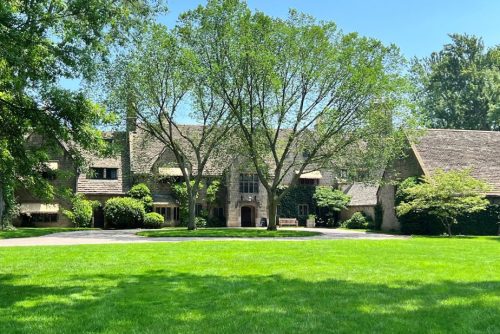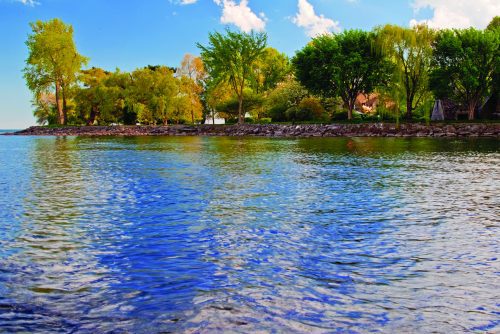Ford Cove Restoration Project Survey
For the initial phase of the Ford Cove Shoreline and Coastal Wetland Restoration Project, Ford House will complete a feasibility study, gather public input, and create a concept for restoration in partnership with Great Lakes Commission (GLC) and National Oceanic and Atmospheric Administration (NOAA).
The link below will connect you to a short survey of questions pertinent to the feasibility study and concept development of the Ford Cove Shoreline and Coastal Wetland Restoration Project and will help immensely in our efforts to provide the best possible improvements. Please let us know what you think and look for further information concerning this project here in autumn 2021, when will we share preliminary results of select activities discussed above and ask for more input from you!
CLICK HERE to take the survey.
About the Ford Cove Shoreline and Coastal Wetland Restoration Study
This effort will include collaboration with Michigan Departments of Natural Resources (DNR) Fisheries Division and Environment, Great Lakes, and Energy (EGLE), Macomb County’s Planning and Economic Development Department, Parks and Natural Resources Division, and OHM Advisors, and will include detailed baseline chemical, geotechnical, and ecological evaluations, preliminary hydrodynamic modeling, and produce conceptual plans with estimated construction costs and restoration recommendations.
Chemical evaluations during this feasibility study will include collecting temperature, specific conductivity, turbidity, dissolved oxygen, and pH. These parameters will shed light on the current water quality conditions existing at the site and show how fast and in which direction water flows under the Bird Island bridge under differing conditions.
Geotechnical evaluations will include probing soils on the Lake St Clair lakebed, in Ford Cove, and on the Ford House grounds nearby to evaluate soil structure and composition, determine the presence of contaminants known to the region, and record groundwater conditions. Chemical laboratory testing will inform options for material handling and disposal of excavated sediments and soils, as well as shoreline stabilization.
The hydrodynamic evaluation will develop a 3-dimensional flow model to simulate dynamics and analyze wave conditions in Lake St. Clair in the immediate project area and Ford Cove. This model will demonstrate current conditions and provide insight into potential changes in water movement caused by proposed restoration work. A bathymetric survey will also be conducted to obtain the accurate location of underwater features and the topography of Ford Cove and the Lake St Clair lakebed.
Ecological evaluations will create a baseline understanding of the biological communities existing under current conditions in Lake St Clair, Ford Cove, and the surrounding Ford House grounds. Fish, amphibians and reptiles, birds, aquatic macroinvertebrates, and vegetation will be surveyed and measured with data recorded to be compared with surveys conducted after restoration work is complete. Wetlands on the site will be investigated and mapped for reference during the development of restoration concepts. In order to protect our threatened and endangered species, an investigation to determine if native species of mussels exist will be conducted.
Building on data gathering and baseline evaluations, the concept development will include recommendations for coastal, nearshore, and upland habitat restoration in Ford Cove, Bird Island, and the surrounding grounds. The concept will include schematic design illustrative diagrams of habitat structures, landscape improvements, and site restoration layout, as well as provide budget estimates, preliminary schedules, informational/educational signage.
This effort is part of a continuum of restorative activities being undertaken through the St Clair-Detroit River System Initiative, which is taking actions to address beneficial use impairments, improve water quality, increase overall biodiversity, increase production of indigenous fish stocks, and reduce impacts from aquatic invasive species threats.
For additional project-specific information or updates, please contact Kevin Drotos at kdrotos[at]fordhouse.org.




